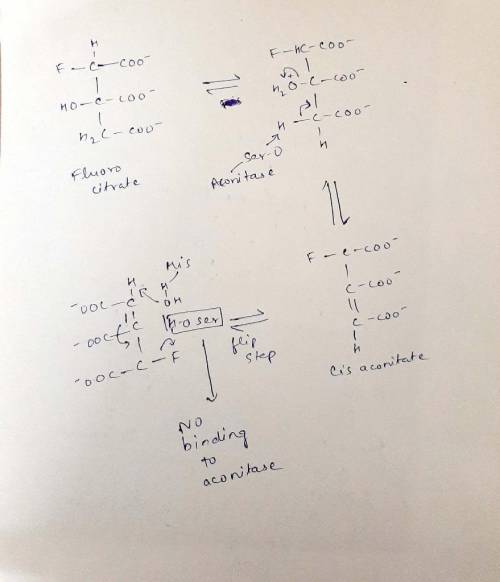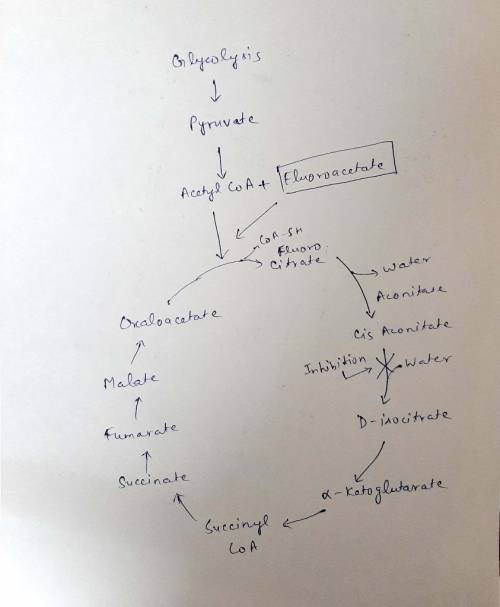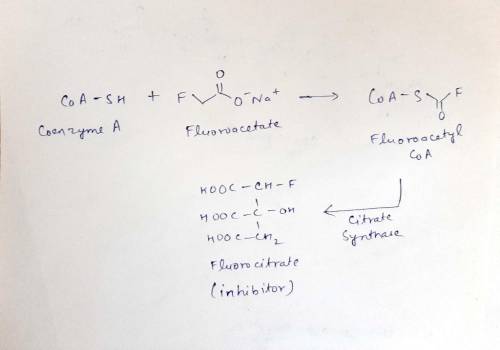
Biology, 10.03.2020 06:24 naocarolina6
The TCA cycle in a particular tissue has been inhibited by fluoroacetate. However, it is not the fluoroacetate that is responsible for the inhibition. It gets converted to another molecule that enters the TCA cycle and is transformed into the inhibitor.
a. Propose the inhibitor molecule and mechanistically show the conversion of fluoroacetate to the inhibitor.
b. Indicate at what step fluoroacetate ultimately inhibits the TCA cycle.
c. Explain why you think fluoroacetate acts as an inhibitor of this enzyme? Your answer should include some sort of mechanistic explanation.
d. What difference in the concentration of each TCA cycle metabolite would you expect, compared with a normal uninhibited tissue? List each metabolite and indicate the effect on its concentration.

Answers: 1


Other questions on the subject: Biology

Biology, 21.06.2019 18:30, tanaemichel
Tlymphocytes mature in the? a. thyroid gland. b. bone marrow. c. spleen. d. thymus.
Answers: 1

Biology, 21.06.2019 19:00, jamesnaquan132
The model illustrates a process by which a substance is taken up by a cell
Answers: 2

Biology, 22.06.2019 06:20, rosie20052019
What makes a dominant allele different from a recessive allele
Answers: 2
You know the right answer?
The TCA cycle in a particular tissue has been inhibited by fluoroacetate. However, it is not the flu...
Questions in other subjects:


Physics, 24.09.2019 17:30






Health, 24.09.2019 17:30


History, 24.09.2019 17:30







